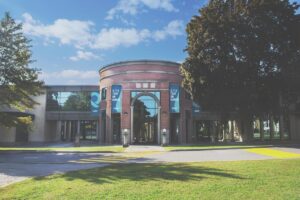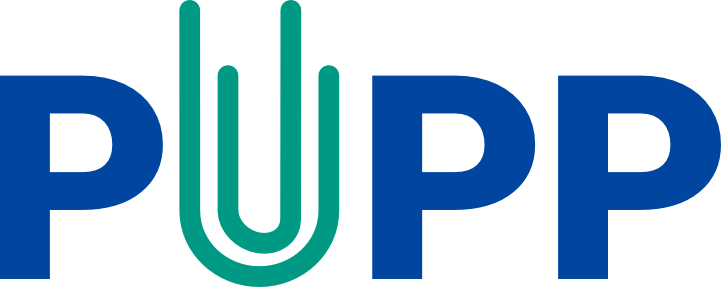 Gatineau-Ottawa May 21-24 2024: Joint International Conference on Ethics and Integrity in Academia: Plagiarism, Prevention and Pedagogy in a New Digital Era.
Gatineau-Ottawa May 21-24 2024: Joint International Conference on Ethics and Integrity in Academia: Plagiarism, Prevention and Pedagogy in a New Digital Era.
Symposium 4, under the coordination of Martine Peters (Université du Québec en Outaouais, Canada).
As part of the conference, the coordinator is looking for 10 to 12 contributing writers in preparation for the symposium related to the theme “Academic Integrity and Technology“. This call is not limited to PUPP members, so if you know of anyone who might be interested, please pass the call along.
PDF – Call for papers – Symposium 4 Academic Integrity and Technology
“Introduction of technology in our universities has changed the way we teach and the way we learn (Bates, 2019). Many teachers think that computers, the internet, or nowadays artificial intelligence, enable students to plagiarize (Abu Farha, Mukattash et Al-Delaimy, 2021), offer new ways of plagiarizing (Peytcheva-Forsyth, Aleksieva et Yovkova, 2018; Poenaru, 2022) or facilitate the buying of papers online (McKenna, 2022). According to Clipa, Balta et Mâță (2022), young people are used to technology, having grown up surrounded by it, and have a different perception of what is acceptable or not when using the internet than the older generations.
Some researchers have focused their work on sanctioning misconducts (McKenna, 2022; Sutherland-Smith, 2011), trying to figure out the reasons why students plagiarize (Cronan, Mullins et Douglas, 2018) or how they go about their misdeed (Carroll, 2016; Carroll et Appleton, 2005). Other researchers have taken a different direction, examining how to prevent plagiarism before it occurs (Eaton, 2021), how to better train students (Peters, 2021) or eliminate the factors that would potentially encourage them to cheat.
Contributions can address every step taken by students to produce their assignments with technology, throughout the academic writing process, that is searching for information, drafting texts, and referencing source documentation. Although artificial intelligence has drastically gained popularity, over the past months, we are interested in all digital applications, software, or tools that students and teachers may be using in a university environment to prevent plagiarism and promote academic integrity.
This call for proposals focuses on the link between technology and the continuum between plagiarism and academic integrity. The final papers will be published in a special issue of a Journal (to be announced). Your contributions can address a variety of research interest including but not limited to the following:
- artificial intelligence
- digital collusion or collaboration
- editing and correction software
- information literacy
- paraphrasing tools
- plagiarism detection software
- referencing software
- etc.
We aim to assemble contributions from a myriad of authors originating from a diversity of geographical regions and academic disciplines. We welcome proposals from seasoned and novice scholars, as well as graduate students”.
Please submit a 500 word (including references) synopsis/proposal of your chapter by September 1st, 2023 to Martine Peters at martine.peters@uqo.ca.
You will be informed if your proposal is accepted by October 30, 2023. You will be required to submit an electronic copy of your full chapter (approximately 5000-6000 words) to Martine Peters by February 15th, 2024. Publication date of December 2024/January 2025.
Important dates to remember
- Deadline for expression of interest and contribution proposal September 1, 2023
- Response to proposals October 30, 2023
- Submission of first draft (5000 words) February 15, 2024 to Martine Peters
- Symposisum at PUPP conference May 21-22, 2024
PDF – Call for papers – Symposium 4 Academic Integrity and Technology
Other call for papers HERE.
References :
- Abu Farha, R., Mukattash, T. et Al-Delaimy, W. (2021). Predictors of plagiarism research misconduct: A study of postgraduate pharmacy students in Jordan. Journal of Academic Ethics, 19, 541-553.
- Bates, A. W. (2019). Teaching in a Digital Age – Second Edition. Repéré à https://pressbooks.bccampus.ca/teach
- Carroll, J. (2016). Making decisions on management of plagiarism cases where there is a deliberate attempt to cheat. Handbook of academic integrity, 199-219.
- Carroll, J. et Appleton, J. (2005). Towards consistent penalty decisions for breaches of academic regulations in one UK university. International Journal for Educational Integrity, 1(1).
- Clipa, O., Balta, N. et Mâță, L. (2022). Investigating the Relationship Between Internet Ethics and Motivational Orientations in Higher Education. Ethical Use of Information Technology in Higher Education, 65-81.
- Cronan, T. P., Mullins, J. K. et Douglas, D. E. (2018). Further understanding factors that explain freshman business students’ academic integrity intention and behavior: Plagiarism and sharing homework. Journal of Business Ethics, 147(1), 197-220.
- Eaton, S. E. (2021). Plagiarism in higher education : tackling tough topics in academic integrity. Repéré à https://search.ebscohost.com/login.aspx?direct=true&scope=site&db=nlebk&db=nlabk&AN=2913822
- McKenna, S. (2022). Plagiarism and the commodification of knowledge. Higher Education, 84(6), 1283-1298.
- Peytcheva-Forsyth, R., Aleksieva, L. et Yovkova, B. (2018). The impact of technology on cheating and plagiarism in the assessment – The teachers’ and students’ perspectives. AIP Conference Proceedings, 2048(1), 020037. doi: 10.1063/1.5082055
- Poenaru, A.-G. (2022). Students’ Attitude Toward the Unethical Use of Information Technology. Ethical Use of Information Technology in Higher Education, 83-97.
- Sutherland-Smith, W. (2011). Crime and punishment: An analysis of university plagiarism policies. Semiotica, 2011(187), 127-139. doi: 10.1515/semi.2011.067
